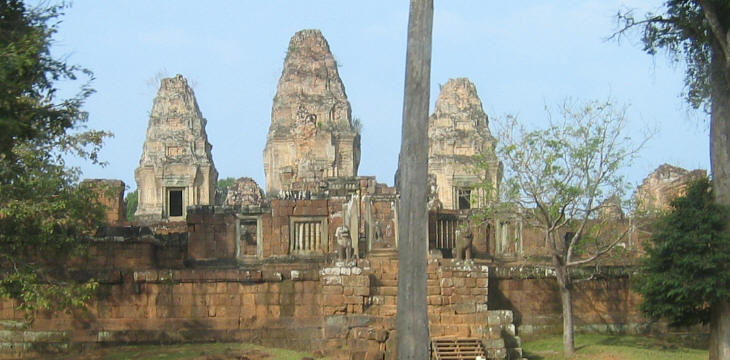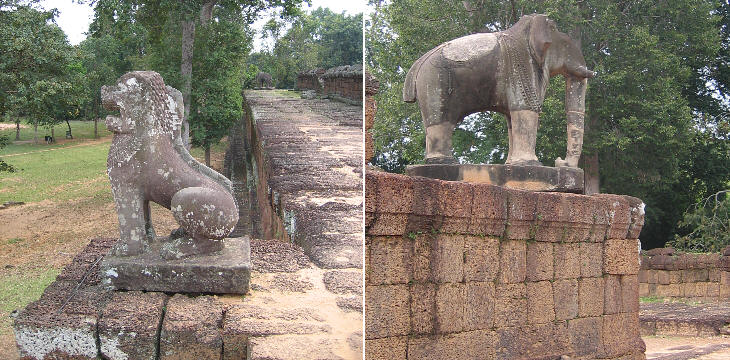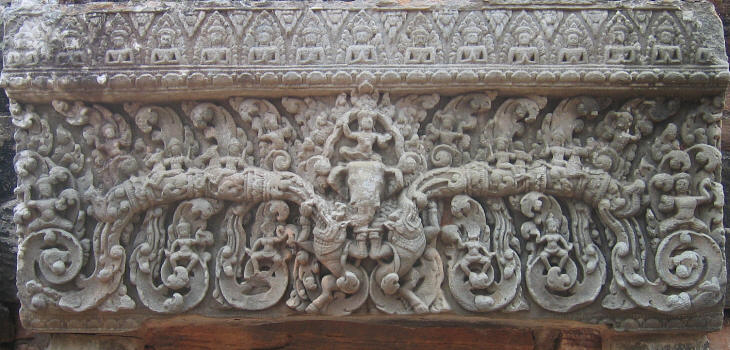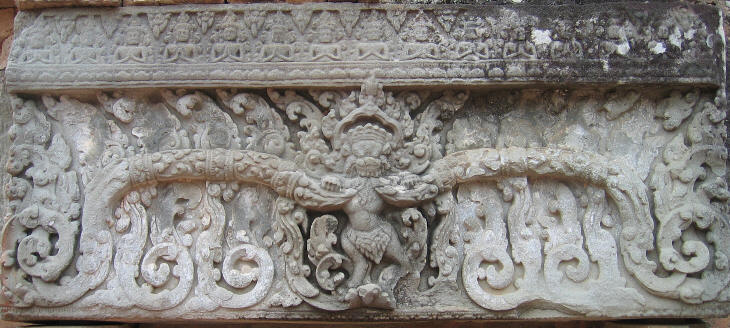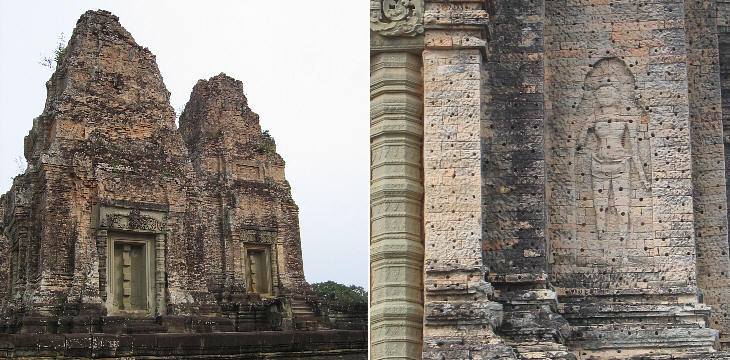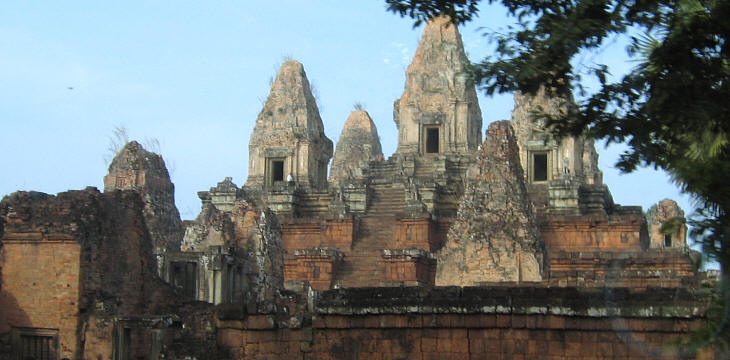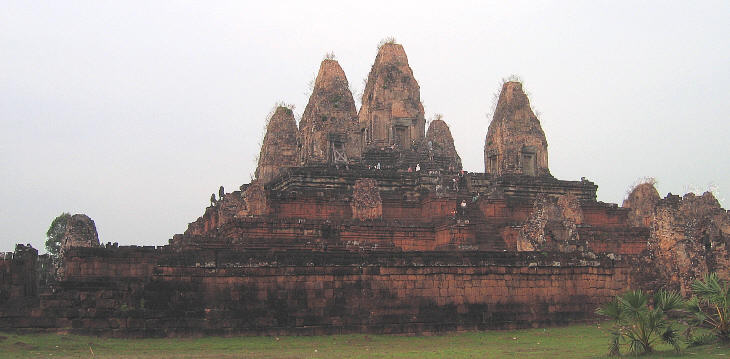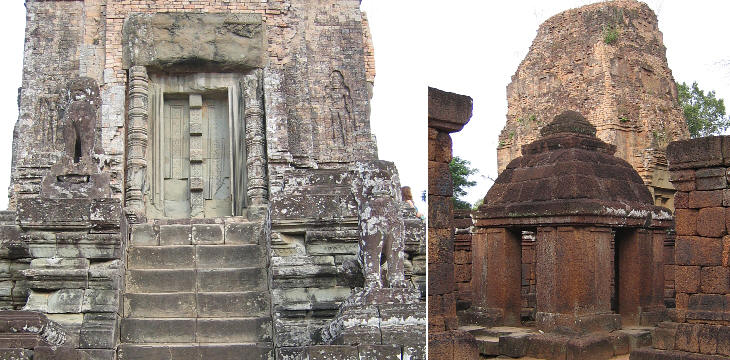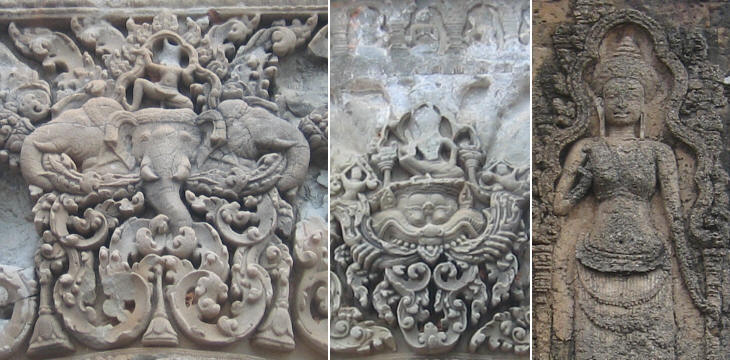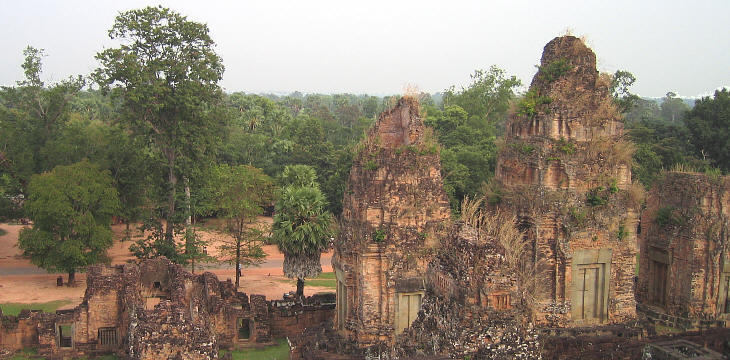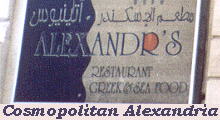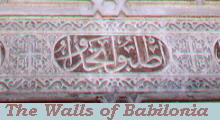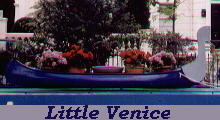  What's New! Detailed Sitemap All images © by Roberto Piperno, owner of the domain. Write to romapip@quipo.it. Text edited by Rosamie Moore. |
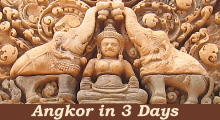 Day two - page three Day two - page three(relief in Banteay Srey) East Mebon East Mebon is one of the first temples built in the Angkor region. King Rajendravarman built it in 952 at the centre of a large water reservoir (Eastern Baray).
Today East Mebon is surrounded by trees, but when it was built it could be accessed only by boat: because of its high temples and its location in a basin, it represented mythological Mount Mandara which stood at the centre of the Ocean of Milk.
Elephants at the corners of the terraces and lions at the sides of the steps acted as wardens of the shrine: it is interesting to note that the statues of the elephants are very true to life, while those of the lions are a "literary" representation of the king of the animals.
East Mebon was dedicated to Shiva, one of the main Hindu deities: he is viewed as the Destroyer and this may explain why many lintels are decorated with Kala, the time-eater deity represented with an open mouth in the act of devouring something. East Mebon is mainly a masonry building, but the lintels were carved on grey sandstone blocks.
Pre Rup
In 961 King Rajendravarman built a second large temple dedicated to Shiva on the southern shore of Eastern Baray: it was aligned with Mebon and the view of the two temples must have been very evocative: today the effect is lost because of the high trees between the two monuments.
The reddish colour of the bricks is heightened at sunset. Pre Rup has more vertical thrust than Mebon.
All temples of Angkor had four doors aligned with the cardinal points: of these doors usually three were blind doors and only one (almost always the eastern one) gave access to the interior. Khmer architects did not know about the true arch and they used corbelling to close openings: notwithstanding this limitation they were able to build (on a small scale) elegant roofs which resembled a dome.
The guardian deities presiding over the cardinal points all sat on elephants. Indra, one of the oldest Hindu deities, sat on Airavata.
 SEE THESE OTHER EXHIBITIONS (for a full list see my detailed list). |
